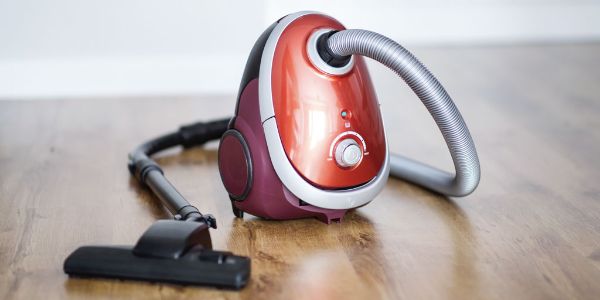Keeping our living spaces clean and tidy is an essential part of maintaining a healthy and comfortable home. When it comes to effective cleaning, a good vacuum cleaner is an indispensable tool.
But with a myriad of options available in the market, choosing the right vacuum cleaner can be a daunting task. One of the key factors to consider is the power of the vacuum cleaner, typically measured in watts.
In this article, we’ll delve into the question of how many watts a good vacuum cleaner should have and explore other crucial aspects to help you make an informed decision.

What Are Watts and Why Do They Matter?
Before we dive into the ideal wattage, let’s understand what watts represent in a vacuum cleaner. Watts indicate the power consumption of the motor and the suction strength of the vacuum cleaner. A higher wattage generally implies more powerful suction, resulting in more effective cleaning. However, it’s important to note that wattage alone doesn’t determine the overall cleaning performance.
Factors Influencing the Wattage
While choosing the wattage of a vacuum cleaner, it’s crucial to consider several factors that impact its effectiveness:
- Flooring Types: The type of flooring in your home plays a significant role in determining the required wattage. For carpets and rugs, a higher wattage is generally recommended to tackle embedded dirt and pet hair effectively. On the other hand, hard floors like tile, hardwood, or laminate may not require as much wattage since they are usually easier to clean.
- Home Size: The size of your home also influences the vacuum cleaner’s wattage requirement. Larger homes with multiple rooms may benefit from a more powerful vacuum to maintain efficient cleaning throughout the entire space.
- Lifestyle and Cleaning Needs: Consider your lifestyle and specific cleaning needs. Do you have pets that shed a lot? Are you prone to allergies or asthma? These factors might necessitate a vacuum cleaner with higher wattage to ensure thorough cleaning and effective removal of allergens and pet hair.
Ideal Wattage Range
Now that we’ve discussed the factors influencing wattage, let’s consider the ideal wattage range for a good vacuum cleaner:
- Standard Upright Vacuum Cleaners: For standard upright vacuum cleaners, a wattage range between 600-1500 watts is generally considered suitable for most households. This range provides ample power to handle various flooring types and cleaning needs.
- Canister Vacuum Cleaners: Canister vacuum cleaners typically have separate motor units, and their wattage can range from 1000 to 2000 watts. This higher wattage ensures sufficient suction power and flexibility for both carpets and hard floors.
- Stick and Handheld Vacuum Cleaners: Stick and handheld vacuum cleaners are often more compact and portable. While their wattage usually falls in the range of 100-600 watts, they can still provide effective cleaning for small areas, quick touch-ups, and hard-to-reach spots.
Importance of Other Features
While wattage is an important consideration, it’s not the sole factor in determining the overall performance of a vacuum cleaner. Several other features contribute to its effectiveness:
- Filtration System: A good vacuum cleaner should have a high-quality filtration system to trap fine dust particles, allergens, and pet dander. Look for models with HEPA filters, which provide excellent air filtration and are especially beneficial for those with allergies or asthma.
- Attachments and Accessories: Different attachments like crevice tools, upholstery brushes, and pet hair brushes enhance the versatility of a vacuum cleaner. Make sure your chosen model includes the attachments you need for specific cleaning tasks.
- Noise Level: Consider the noise level of the vacuum cleaner, especially if you live in an apartment or have noise-sensitive family members. Look for models that prioritize noise reduction without compromising suction power.
- Energy Efficiency: Opt for a vacuum cleaner with an energy-efficient design. This not only helps reduce your environmental footprint but also saves on electricity costs in the long run.
—
Selecting a vacuum cleaner that suits your cleaning requirements involves considering various factors, with wattage being an essential one. The ideal wattage depends on your flooring type, home size, and specific cleaning needs. Remember to also pay attention to the filtration system, attachments, noise level, and energy efficiency when making your decision.
By considering all these aspects, you’ll be equipped to choose a vacuum cleaner that keeps your home clean and fresh, ensuring a healthier and more comfortable living environment.
